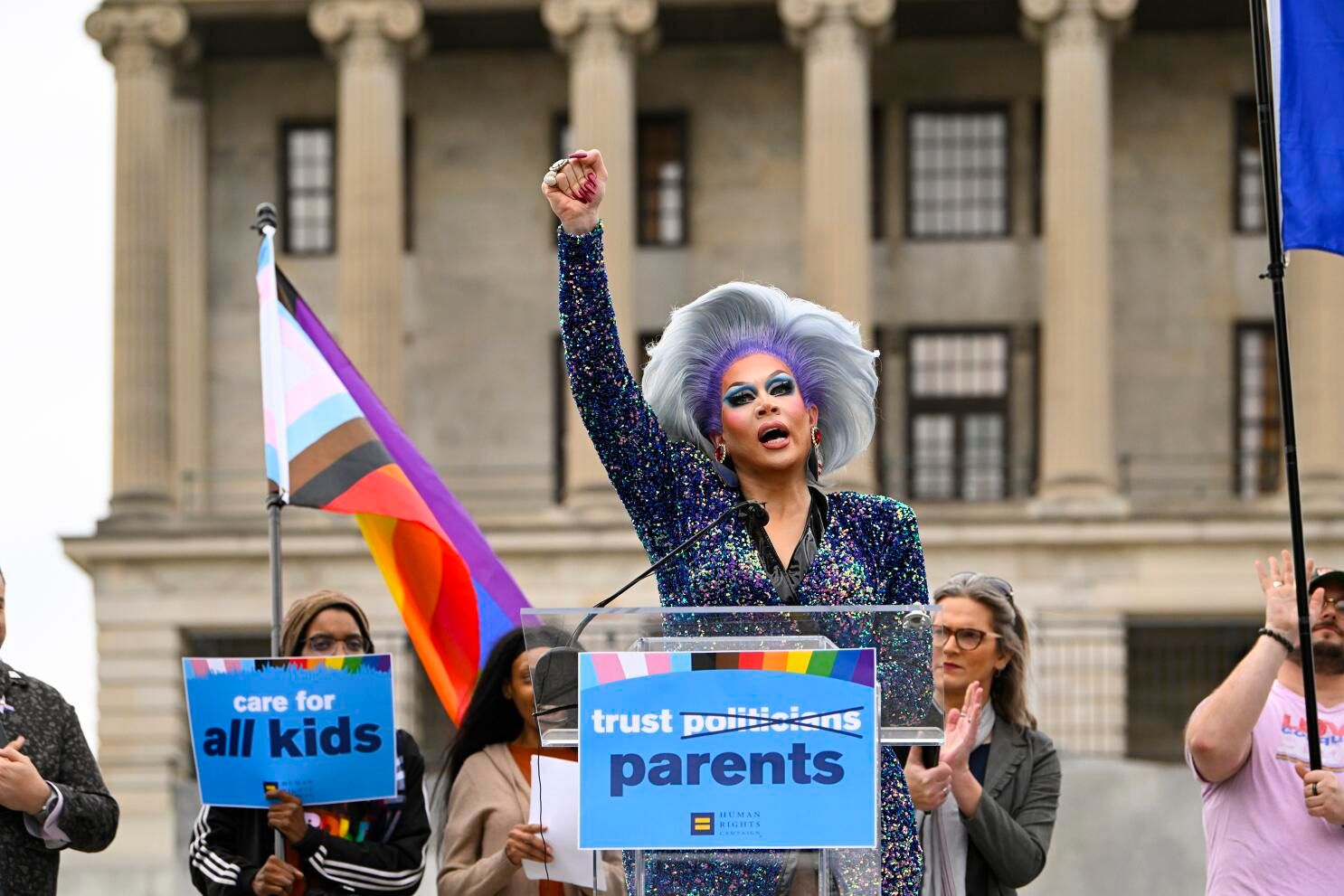
LGBTQ+ rights have come a long way, but there's still much to understand and fight for. Did you know that same-sex marriage is legal in only 30 countries? Despite progress, many places still criminalize same-sex relationships. Transgender rights are also a hot topic, with some nations recognizing gender identity while others lag behind. Pride parades celebrate diversity, yet they often face opposition. Understanding the history and current state of LGBTQ+ rights can help us support the community better. Let's dive into 33 facts that highlight the struggles, victories, and ongoing battles for equality.
Key Takeaways:
- LGBTQ+ rights have a rich history, from the first gay rights organization in the US in 1924 to the pivotal Stonewall Riots in 1969, marking the start of the modern LGBTQ+ rights movement.
- Significant progress has been made, from the first country to legalize same-sex marriage in 2001 to the US Supreme Court ruling in 2015. However, ongoing challenges, such as discrimination and violence against transgender individuals, still exist.
Early LGBTQ+ Rights Movements
The fight for LGBTQ+ rights has a rich history, filled with pivotal moments and brave individuals. Here are some key facts about the early movements.
- The first known LGBTQ+ rights organization, the Scientific-Humanitarian Committee, was founded in Germany in 1897.
- In 1924, the Society for Human Rights was established in Chicago, becoming the first gay rights organization in the United States.
- The Stonewall Riots of 1969 in New York City are often considered the catalyst for the modern LGBTQ+ rights movement.
- The first Pride parade took place in New York City on June 28, 1970, marking the anniversary of the Stonewall Riots.
Legal Milestones
Legal recognition and protection have been crucial in the fight for LGBTQ+ rights. These milestones highlight significant progress.
- Illinois became the first U.S. state to decriminalize homosexuality in 1961.
- In 1973, the American Psychiatric Association removed homosexuality from its list of mental disorders.
- The Netherlands was the first country to legalize same-sex marriage in 2001.
- In 2015, the U.S. Supreme Court ruled in Obergefell v. Hodges that same-sex marriage is a constitutional right.
Global Perspectives
LGBTQ+ rights vary widely around the world. Some countries have made significant strides, while others still face severe challenges.
- South Africa was the first country to include sexual orientation protection in its constitution in 1996.
- In 2017, Taiwan became the first Asian country to legalize same-sex marriage.
- As of 2023, 29 countries have legalized same-sex marriage.
- In many countries, LGBTQ+ individuals still face criminalization, with penalties ranging from fines to imprisonment or even death.
Influential Figures
Many individuals have played critical roles in advancing LGBTQ+ rights. Their contributions have left lasting impacts.
- Harvey Milk was the first openly gay elected official in California, serving on the San Francisco Board of Supervisors.
- Marsha P. Johnson, a transgender activist, was a prominent figure in the Stonewall Riots.
- Edith Windsor's case led to the U.S. Supreme Court striking down the Defense of Marriage Act in 2013.
- Laverne Cox became the first openly transgender person nominated for a Primetime Emmy Award in 2014.
Cultural Impact
LGBTQ+ representation in media and culture has helped shift public perceptions and foster acceptance.
- The TV show "Will & Grace," which premiered in 1998, was one of the first mainstream shows to feature openly gay lead characters.
- In 2016, "Moonlight" became the first LGBTQ+ film to win the Academy Award for Best Picture.
- The rainbow flag, designed by Gilbert Baker in 1978, has become a global symbol of LGBTQ+ pride and diversity.
- "RuPaul's Drag Race," which debuted in 2009, has brought drag culture into the mainstream.
Health and Well-being
Access to healthcare and mental health support is vital for the LGBTQ+ community. These facts highlight some key issues and advancements.
- The AIDS epidemic of the 1980s and 1990s had a devastating impact on the LGBTQ+ community, leading to increased activism and awareness.
- In 2012, the FDA approved PrEP (pre-exposure prophylaxis), a medication that significantly reduces the risk of HIV transmission.
- LGBTQ+ youth are more likely to experience mental health issues, including depression and anxiety, due to discrimination and stigma.
- Many countries now have laws protecting LGBTQ+ individuals from discrimination in healthcare settings.
Workplace Rights
Ensuring equal treatment in the workplace is a critical aspect of LGBTQ+ rights. Here are some important developments.
- In 1987, the first national March on Washington for Lesbian and Gay Rights included demands for workplace protections.
- The Employment Non-Discrimination Act (ENDA) was first introduced in the U.S. Congress in 1994, though it has yet to pass.
- In 2020, the U.S. Supreme Court ruled that Title VII of the Civil Rights Act protects employees from discrimination based on sexual orientation and gender identity.
- Many multinational companies now have policies in place to support LGBTQ+ employees, including non-discrimination clauses and benefits for same-sex partners.
Education and Awareness
Education plays a crucial role in fostering acceptance and understanding. These facts highlight efforts to promote LGBTQ+ awareness.
- The Gay, Lesbian & Straight Education Network (GLSEN) was founded in 1990 to create safe and inclusive schools for LGBTQ+ students.
- Many schools now have Gay-Straight Alliances (GSAs) to support LGBTQ+ students and promote inclusivity.
- In 2019, Illinois became the fifth U.S. state to require LGBTQ+ history to be taught in public schools.
- Anti-bullying programs that include LGBTQ+ issues have been shown to reduce harassment and improve school climates.
Ongoing Challenges
Despite significant progress, many challenges remain for the LGBTQ+ community. These facts highlight some of the ongoing issues.
- Transgender individuals face higher rates of violence and discrimination compared to their cisgender counterparts.
The Path Forward
LGBTQ+ rights have come a long way, but there's still work to do. Progress has been made in many countries, yet discrimination and inequality persist. It's crucial to stay informed and support policies that promote equality. Small actions, like educating others and standing up against hate, can make a big difference.
Remember, every step toward equality counts. By understanding the history and current state of LGBTQ+ rights, we can all contribute to a more inclusive world. Keep pushing for change, and don't let setbacks discourage you. The fight for equality is ongoing, and every voice matters.
Stay engaged, stay informed, and continue advocating for a world where everyone, regardless of their identity, can live freely and without fear. Together, we can create a brighter future for all.
Frequently Asked Questions
Was this page helpful?
Our commitment to delivering trustworthy and engaging content is at the heart of what we do. Each fact on our site is contributed by real users like you, bringing a wealth of diverse insights and information. To ensure the highest standards of accuracy and reliability, our dedicated editors meticulously review each submission. This process guarantees that the facts we share are not only fascinating but also credible. Trust in our commitment to quality and authenticity as you explore and learn with us.


